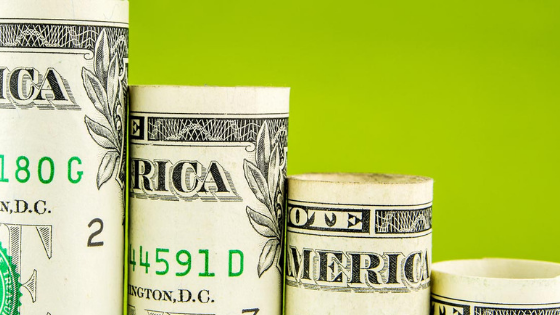“The dollar is too strong. It acts like a subsidy to all of the exports from China, and these other countries and attacks on everything we’re trying to sell to China, Japan, and the entire world. We compete with these countries, so the dollar is really the key variable,” he said.
[Julie Manchester | May 21, 2019 | The Hill]
Economist Robert Scott said Tuesday that the U.S. should lower the value of its dollar in order to reduce its trade deficit with China and other global economic powers.
“If you really care about the trade deficit with China, what you want to do is come up with a strategy, a plan, that’s going to reduce the deficit, Scott, director of trade and manufacturing policy research at the Economic Policy Institute, told Hill.TV’s Krystal Ball and Saagar Enjeti on “Rising.”
“Not just with China, but with all of the countries that have been running large systematic surpluses with the world for the past two decades, and that includes Japan, [South] Korea, and the European Union, which now actually has the largest surplus in the world,” he continued.
Scott argued that the “single best tool” the U.S. has for reducing its deficit is to lower the value of the U.S. dollar.
“The dollar is too strong. It acts like a subsidy to all of the exports from China, and these other countries and attacks on everything we’re trying to sell to China, Japan, and the entire world. We compete with these countries, so the dollar is really the key variable,” he said.
Scott’s comments come amid an increasingly tense standoff between the U.S. and China over trade negotiations.
Earlier this month, Trump increased the tariff rate on $200 billion of Chinese imports, saying Beijing had reneged on previously agreed-upon positions in the negotiations. China retaliated by increasing its tariffs on $60 billion of U.S. goods, set to go into effect on June 1.
A Morgan Stanley analysis this week showed that if President Trump goes ahead with his proposed 25 percent tariffs on $300 billion of Chinese imports, he would likely tip the global economy into a recession.
“The problem with the tariff is China has used it as an excuse to actually lower the value of its currency by about eight percent. That’s China’s ace in the hole,” Scott said. “So it has allowed them to essentially escape the tariffs.”
“If they lower the cost of their products, and so when we oppose a tariff, then that effect isn’t really giving a push,” he added.
Read the original article here.













